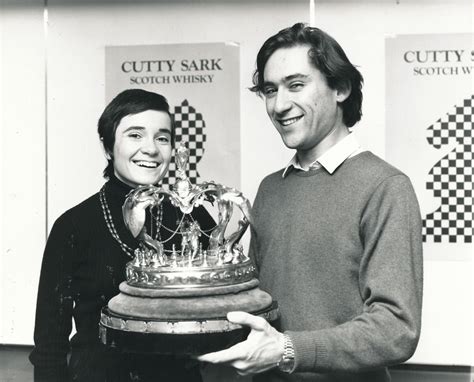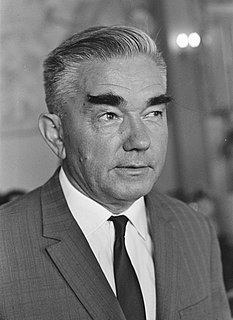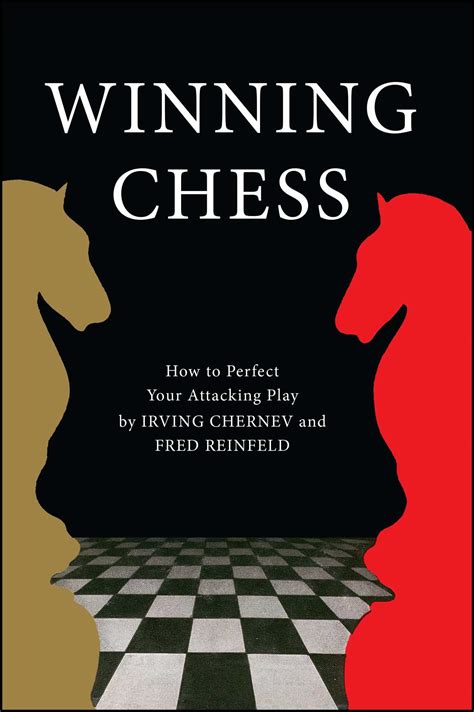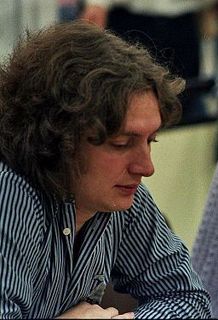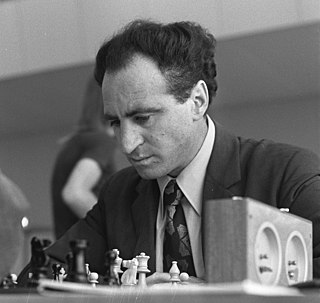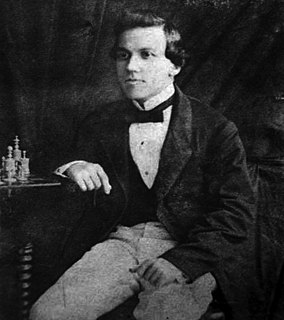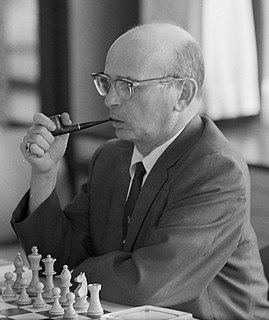A Quote by William Hartston
Wilhelm Steinitz was the first man to appreciate the inherent logic behind the game of chess.
Related Quotes
Chess is more than a game or a mental training. It is a distinct attainment. I have always regarded the playing of chess and the accomplishment of a good game as an art, and something to be admired no less than an artist's canvas or the product of a sculptor's chisel. Chess is a mental diversion rather than a game. It is both artistic and scientific.
As with Steinitz, Fischer's genius has often been concealed by controversies away from the board. Like Lasker, Fischer has raised chess to new financial heights despite frequent retreats from serious play. And, like Capablanca, Fischer is recognized by millions of non-players and has won the game many new enthusiasts.
I love chess, and I didn't invent Fischerandom chess to destroy chess. I invented Fischerandom chess to keep chess going. Because I consider the old chess is dying, it really is dead. A lot of people have come up with other rules of chess-type games, with 10x8 boards, new pieces, and all kinds of things. I'm really not interested in that. I want to keep the old chess flavor. I want to keep the old chess game. But just making a change so the starting positions are mixed, so it's not degenerated down to memorisation and prearrangement like it is today.
In chess the most unbelievable thing for me is that it's a game for everybody: rich, poor, girl, boy, old, young. It's a fantastic game which can unite people and generations! It's a language which you'll find people "speak" in every country. If you reach a certain level you find a very rich world! Art, sport, logic, psychology, a battlefield, imagination, creativity not only in practical games but don't forget either how amazing a feeling it is to compose a study, for example (unfortunately that's not appreciated these days but it's a fantastic part of chess!).
Well, I kind of split my life into two pieces. One was where my chess career lies. There, I kept my sanity, so to speak, and my logic. And the other was my religious life. I tried to apply what I learned in the church to my chess career too. But I still was studying chess. I wasn't just "trusting in God" to give me the moves.
I used to play a lot of chess and competitive chess and study chess and as you get to the grandmasters and learn their styles when you start copying their games like the way they express themselves through... The way Kasparov or Bobby Fischer expresses themselves through a game of chess is it's astonishing. You can show a chess master one of their games and they'll say "Yeah, that is done by that player."
